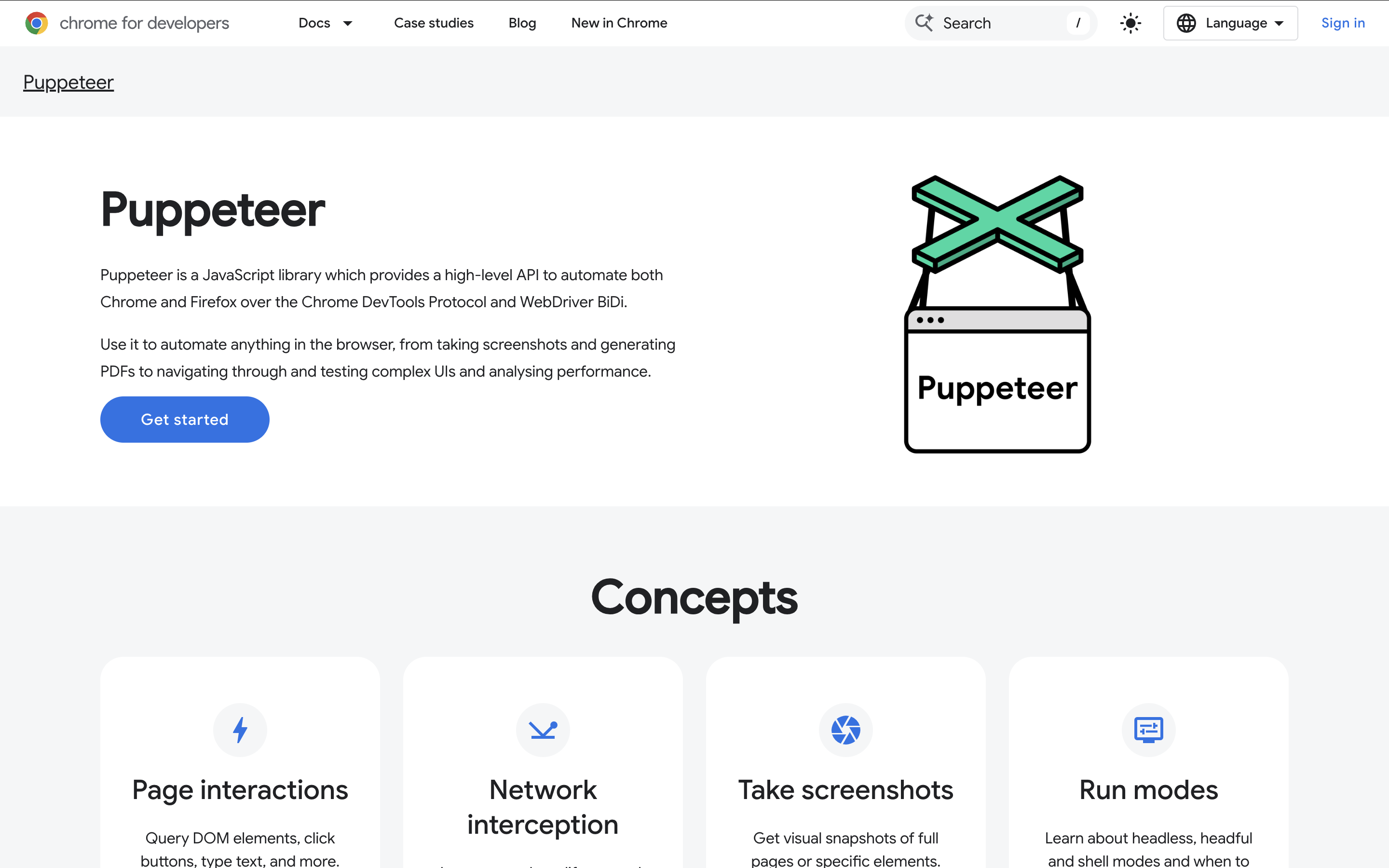Top 6 Cypress Alternatives For Faster Web Testing
Learn with AI
Software and QA teams are increasingly using Cypress for web testing, reaching an impressive 6.3M weekly downloads.

However, as development teams scale and applications grow more complex, many engineering leaders are experiencing significant limitations and are actively exploring Cypress alternatives.
Challenges of testing with Cypress
Many engineering teams encounter recurring issues when testing with Cypress. A popular Reddit thread identifies five major challenges:

The root cause behind these challenges lies in Cypress’s execution model:
1. Complex async command chaining — Cypress commands are asynchronous but use a custom chain-based system. When mixed with JavaScript promises or shared data between commands, test logic can become deeply nested and difficult to maintain.
Here's an example:
describe('Nested .then() example', () => {
it('demonstrates async chaining issues', () => {
cy.visit('https://example.com')
cy.get('#login').type('user@example.com')
.then(() => cy.get('#password').type('secret123'))
.then(() => cy.get('#submit').click())
.then(() => {
return new Promise((resolve) => {
setTimeout(() => resolve('Custom async step complete'), 1000)
})
})
.then((message) => {
cy.log(message)
return cy.get('.welcome').invoke('text')
})
.then((text) => {
expect(text).to.include('Welcome')
})
})
})2. Automatic retries can mask weak assertions, leading to false positives when tests only verify element existence instead of behavior.
3. Test bloat occurs when developers combine multiple flows into a single specification to reduce setup cost, making tests harder to read and maintain.
4. Overuse of cy.wait(): Cypress waits automatically, but timing issues with third-party services often push teams to add arbitrary waits, resulting in brittle and slow test suites.
How to choose a Cypress alternative?
When selecting an alternative, focus on scope, scalability, and system integration—not just syntax or UI convenience.
- For UI-heavy web apps: Playwright and TestCafe deliver stronger cross-browser support, multi-tab testing, and better reliability.
- For API-first or backend-heavy applications: Postman, Rest Assured, and Karate offer more structured API testing.
- For hybrid (web + mobile) environments: Playwright and Appium provide greater platform flexibility.
Here’s a simple comparison table between Cypress, Playwright, Selenium, TestCafe, and Appium across six evaluation factors:
| Evaluation Factor | Cypress | Playwright | Selenium | TestCafe | Appium |
|---|---|---|---|---|---|
| Multi-Browser | Chrome/Edge/Firefox | All Major | All Major | All Major | Web only |
| Multi-Tab/Window | Limited | Full Support | Full Support | Partial | Full |
| API Testing | Basic | Good | Manual | Basic | Limited |
| Mobile Support | None | Android/iOS (emulated) | Requires Appium | None | Native |
| Parallel Runs | Cloud-only | Built-in | Grid Support | CLI-based | Built-in |
| Language Support | JS/TS only | JS/TS/Python/Java/C# | Multi-language | JS/TS only | Multi-language |
Top 6 Cypress alternatives for 2026
Here are 6 Cypress alternatives introduced in this article:
- Playwright
- Selenium
- Katalon
- TestCafe
- WebDriverIO
- Puppeteer
Let's dive in!
1. Playwright (Open-source alternative to Cypress)

Playwright is a rising star in the automation ecosystem and a strong alternative to Cypress. Here are some key reasons why:
1. Architectural advantage compared to Cypress

Playwright runs tests outside the browser context and controls multiple browser instances through automation protocols rather than injecting scripts into the application (like Cypress). This unlocks several advantages:
- True multi-tab and multi-window control, which Cypress lacks due to its single-tab architecture.
- Cross-browser coverage out of the box: Chrome, Firefox, Edge, and WebKit (Safari) with consistent APIs. Cypress supports only Chromium and partial Firefox.
- Lower memory footprint: Cypress runs everything in a single browser process. Playwright uses isolated browser contexts, reducing memory pressure and avoiding the common “Cypress stopped executing after 100 tests” problem.
2. Execution and parallelization
Playwright offers native parallelization and test sharding, enabling teams to distribute tests across CPU cores without external services. Cypress limits parallelization behind its paid Cypress Cloud and requires self-hosted options like sorry-cypress.
- Playwright’s CLI (--workers) scales easily across environments.
- Tests run faster because Playwright handles network, visibility, and waits through event-driven logic rather than retry-based polling.
Teams switching to Playwright consistently report shorter runtimes and lower CPU usage.
2. Selenium (Open-source Cypress alternative)

Selenium operates using a remote WebDriver protocol, communicating with a browser driver through request–response messages. Cypress embeds a browser inside an Electron app and injects code directly into the application’s event loop.
Where Selenium wins over Cypress:
- Selenium is language-agnostic, supporting any language with a WebDriver client. Cypress supports only JavaScript and TypeScript.
- Selenium can open multiple tabs, windows, and user profiles , making it ideal for multi-user flows. Cypress is limited to a single browser context.
- Selenium Grid provides scalable parallel execution across environments for free. Cypress parallelization requires paid cloud or complex orchestration.
- Selenium supports a broader range of browsers, including older and niche ones. Cypress targets only modern browsers and has unstable Safari/WebKit support.
Final verdict: Selenium is better for multi-user workflows, large-scale parallel runs, and browser diversity. Cypress excels in frontend-heavy single-user testing, component testing, and simple E2E flows.
3. Katalon (All-in-one automation testing platform)

Katalon Studio is part of the Katalon Platform—an end-to-end testing solution supporting web, mobile, and API automation. It provides built-in test frameworks so teams can focus on test creation rather than environment setup.
What Katalon enables:
- Automated testing for web UI, mobile, and APIs (REST, SOAP, GraphQL).
- Built-in data-driven testing and BDD frameworks.
- Parallel execution via Katalon TestCloud.
- Execution locally, remotely, on cloud providers, or via simulators/emulators.
- CI/CD integration with major tools for automatic test triggering.
- Scheduling, execution management, and detailed reports (screenshots, videos, HTML snapshots).
4. TestCafe (End-to-end testing framework on Node.js)

TestCafe is a Node.js-based end-to-end testing framework that does not rely on Selenium. It provides built-in assertions, reporting, and action handling.
Key strengths:
- Cross-browser compatibility: supports all major browsers, mobile devices, and cloud test platforms.
- Native browser event support: handles actions like file uploads out of the box.
- Parallel execution: allows multi-browser parallel runs, reducing overall test time.
Challenges:
- Documentation gaps: users often struggle due to limited or unclear documentation.
- Rigid PageModel structure: required abstractions sometimes create unnecessary complexity for smaller projects.
5. WebDriverIO (Test automation framework for modern web and mobile apps)

WebdriverIO is a test automation framework designed for modern web and mobile applications. It supports both WebDriver and DevTools automation protocols and is frequently paired with Appium for mobile test execution. A major benefit is that it offers a familiar JavaScript/TypeScript testing syntax while remaining flexible across platforms.
The main strengths we identified were:
- Mobile automation support: WebdriverIO integrates smoothly with Appium, making it a strong choice for native mobile testing within a JavaScript environment. Teams avoiding platform-specific SDKs like XCUITest or Espresso benefit most from this.
- Cross-platform capability: Tests can run on desktop browsers, mobile browsers, and native mobile apps. It also works with major cloud providers like BrowserStack and Sauce Labs, and integrates well into CI/CD pipelines.
- Unified configuration and plugins: A streamlined CLI setup, built-in reporters, and a large plugin ecosystem make it easy to customize test environments. Adding runners, assertions, Appium, or DevTools services is straightforward.
However, there were some trade-offs:
- Smaller community and ecosystem: Compared to Playwright or Cypress, WebdriverIO has a more niche community. This means fewer learning resources and slower troubleshooting when tackling complex issues.
- Setup complexity for mobile testing: Although WebdriverIO supports Appium, configuring and stabilizing mobile tests often requires engineers with prior Appium experience. Onboarding can be challenging for teams without this background.
6. Puppeteer (Browser automation library)
Puppeteer, developed by Google, provides a high-level API over the Chrome DevTools Protocol. It's primarily used for browser automation rather than full-stack testing.

Here’s a small Puppeteer test example:
import puppeteer from 'puppeteer';
const browser = await puppeteer.launch({ headless: "new" });
const page = await browser.newPage();
await page.goto('https://katalon.com');
await page.screenshot({ path: 'example.png' });
await browser.close();
Here's a simple comparison table of Cypress vs Puppeteer:
| Feature | Cypress | Puppeteer |
|---|---|---|
| Primary Use | E2E Testing | Browser Automation |
| Performance | Slower | Faster |
| Developer Experience | Excellent | Barebones |
| Built-in Assertions | Yes | No |
| Parallelization | Paid dashboard or limited | Manual setup required |
| Browser Support | Chromium, Firefox (partial Safari) | Chromium (Firefox experimental) |
| Test Runner & CI | Built-in | Needs integration |
| Community | Large, test-centric | Medium, dev-centric |
| Complex/Low-Level Control | Limited | Full (via DevTools Protocol) |
| Multi-tab/Iframe Testing | Limited | Supported |
Final verdict:
-
Use Cypress if you want a seamless end-to-end testing experience with strong debugging tools, built-in utilities, and an opinionated setup that works well out of the box.
-
Use Puppeteer if you need browser control beyond testing — such as scraping, automation scripts, or custom workflows that traditional test frameworks don’t handle easily.
Conclusion
Cypress pioneered accessible end-to-end testing, but modern applications are increasingly complex. QA teams now need broader test strategies that validate not only the presentation layer but also the underlying business logic.
Tools like Katalon TrueTest represent this evolution in testing philosophy — helping teams focus on what truly matters to the business while reducing the brittleness and maintenance overhead of pure UI automation.

As you evaluate alternatives to Cypress, consider not just each tool’s syntax or feature set, but how well it aligns with your application architecture and long-term business objectives. The right testing strategy should provide meaningful validation of core functionality — not just its visual output.
|


